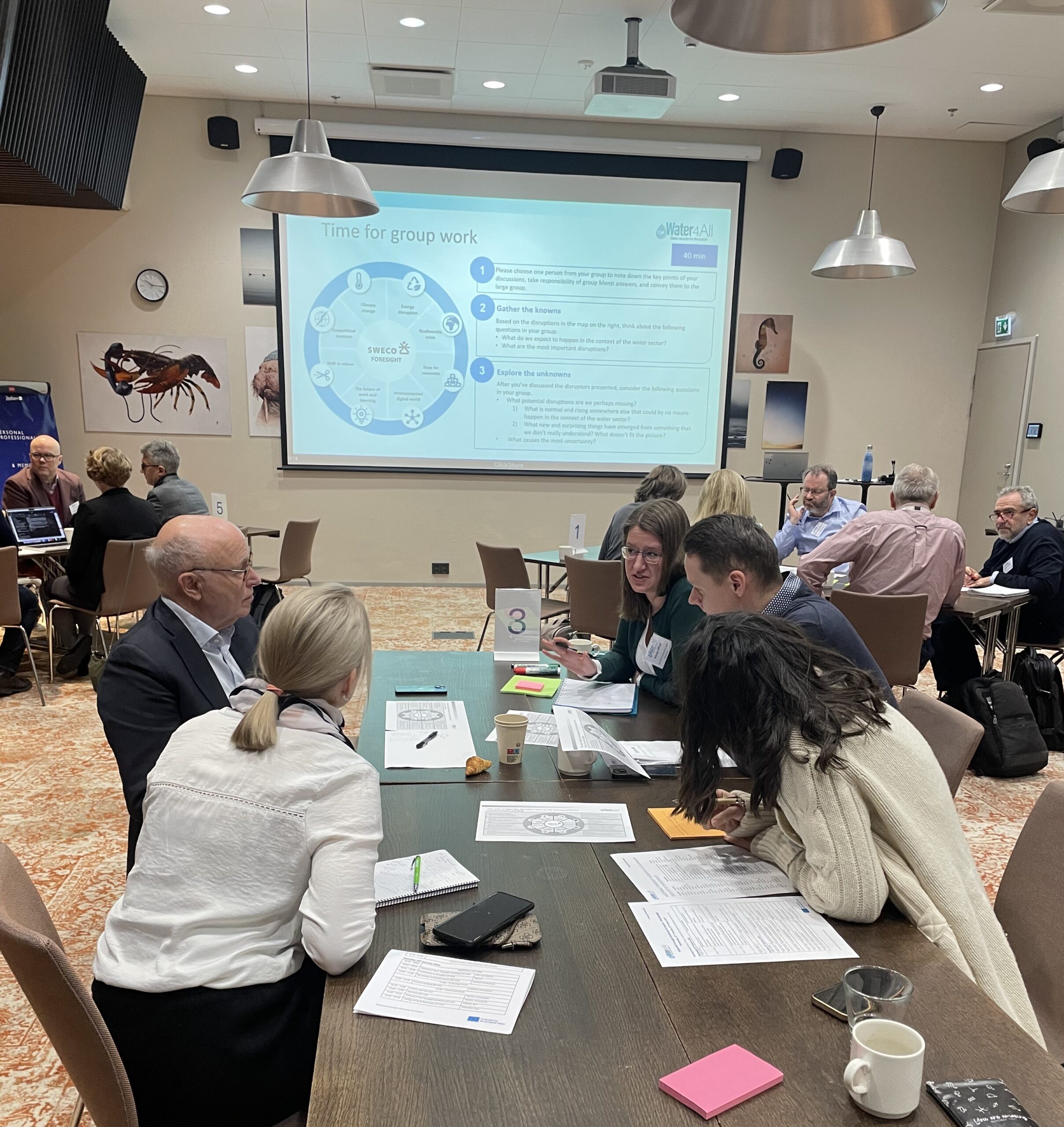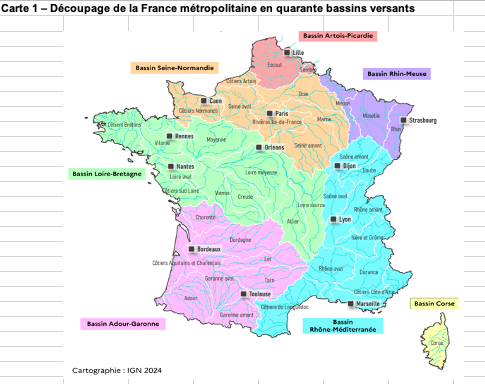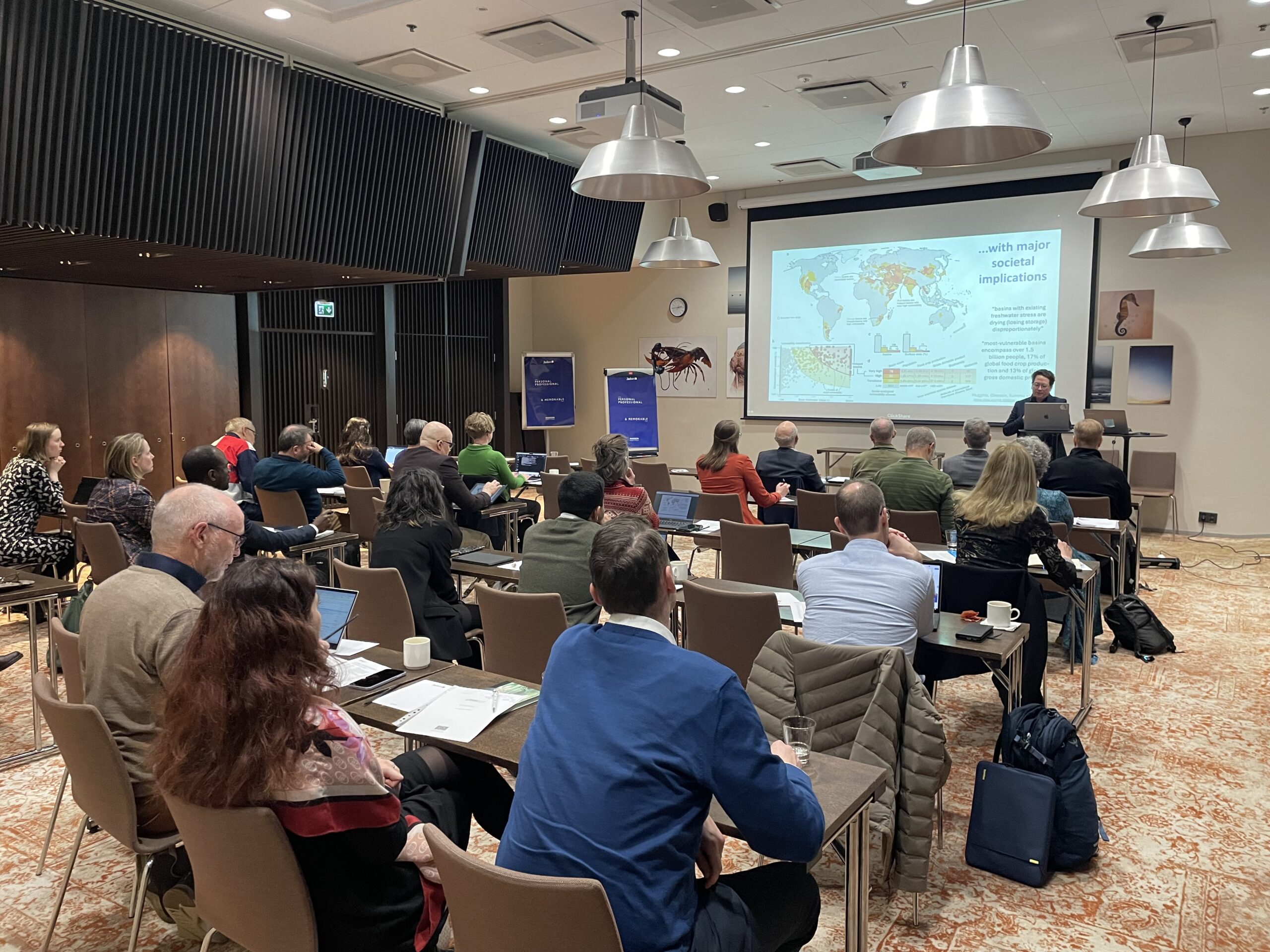
Foresight’ is an impactful methodology for strategic thinking, enabling us to plan for extreme events, and not along the current path. In January, AQUA Legacy was invited to join two workshops looking at foresight for the future of water management, one in Paris with the French government, the second with Water 4 All in Helsinki. Both workshops came up with a series of different futures.
Veronique Briquet-Laugier attended the conference led by France Stratégie, the French government’s think tank. They have released a foresight exercise study titled “What is the evolution of water demand by 2050?”, launched on the 21st of January in Paris, which aims to anticipate future water-related challenges and inform policymaking.
In parallel, Amanda Loeffen joined the Water 4 All workshop, whereby the participants represented experts in water governance, economic development, and technological research institutions. The two-day event called on the experts to develop five potential scenarios for water trends globally, based on a series of facilitated steps.
Scenarios for Future Water Demand
For reference, France Stratégie anticipates three distinct Scenarios for Future Water Demand:
1. The Trend-Based Scenario assumes a continuation of current consumption patterns without significant changes.
2. The Public Policy Scenario simulates the implementation of recently announced public policies, including measures from the National Low-Carbon Strategy (SNBC).
3. The Disruptive Scenario envisions a shift towards water-efficient practices, inspired partly by the territorial cooperation scenario developed by ADEME (French Agency for Ecological Transition).
In the first trend-based scenario, the overall demand in water in France stagnates and there is an increase of +1%. While in the two other scenarios, the public policy and the disruptive one, there is a decrease of -24% and -47%, respectively.
A notable finding of this study is the projected increase in agricultural irrigation demand, which is expected to become the primary water consumer, surpassing the energy sector. This shift is particularly significant as irrigation consumes a larger proportion of the water it withdraws due to plant evapotranspiration.
The water consumption (the portion of withdrawn water that is not directly returned to the environment) is projected to: double (+102%) in the trend-based scenario; increase significantly (+72%) in the public policy scenario; or, increase moderately (+10%) in the disruptive scenario.
This prospective study by France Stratégie serves as an important tool for policymakers and stakeholders in the water sector. It underscores the need for proactive measures to manage water resources effectively in the face of climate change and evolving societal needs. The report suggests that without significant policy interventions, France could face substantial increases in water consumption, particularly during critical summer months. However, the “disruptive” scenario demonstrates that with ambitious water conservation measures, it may be possible to mitigate these increases.
The study’s findings highlight the importance of tailored, region-specific approaches to water management. It also emphasizes the need for a shift in agricultural practices, as irrigation is projected to become the dominant water consumer.

As France and other countries grapple with the challenges of climate change and resource management, this study provides valuable insights for developing sustainable water policies. These three scenarios offer a range of possible futures, allowing decision-makers to better understand the potential consequences of different policy choices and societal trends.
Ultimately, this prospective study serves as a call to action, urging policymakers, industries, and citizens to consider the long-term implications of water usage patterns and to work towards more sustainable water management practices.
